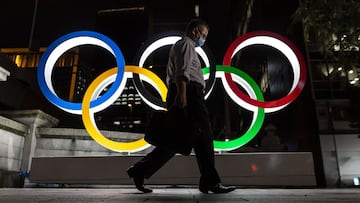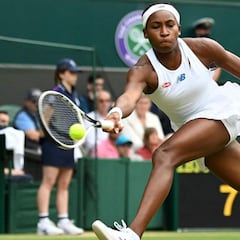Are Olympic athletes vaccinated?
Olympic athletes are not required to be vaccinated in order to participate in the Games, but IOC expects that 80% of Olympic Village residents will be.

The dilemma over whether to require athletes to be vaccinated before attending the Olympic games is facing the reality that it is almost impossible to contain covid-19 without the vaccine. Despite strict protocols to protect athletes and the Japanese community at large, the covid-19 infection bubble has been broken according to health experts.
So far, there are three confirmed positive tests among athletes in the Olympic village. The latest revelation of infections among athletes and staff raises the total number to 68 since the International Olympic Committee (IOC) began compiling the figure on 1 July. Toshiro Muto, head of the Tokyo Games, has not ruled out a last-minute cancellation of the games.
Also see:
- Gauff's positive test dashes dreams
- US gymnast Kara Eaker joins covid-19 positive case list at Olympic Games
- Eight Team GB members isolating as three new covid cases confirmed
- Tokyo Olympics: Japan captain Yoshida questions spectator ban
However, Brian McCloskey, a health expert advising the IOC said at a press conference Monday those cases were expected and possibly even lower than projected. He also said that because of the covid-19 protocols in place which require regular testing of its residents, the athlete’s village was safe.
IOC “playbook” says 80 percent of residents will be vaccinated
The International Olympic Committee’s “playbook” for the Tokyo Games says that vaccination efforts are being coordinated “in line with national immunization priorities established by respective governments.” As there is a gulf between the “haves” and the “have nots” in the worldwide vaccination campaign, some countries’ athletes simply didn’t have access to the covid-19 vaccine.
The IOC encouraged everyone coming to Tokyo to get vaccinated but did not require athletes to be vaccinated in order to participate. The IOC was determined to rely on vaccinating more than 80 percent of residents at the Olympic and Paralympic Village as well as a strict testing and tracing protocol. About 11,000 athletes are expected to stay in the village.
Tokyo reports nearly 1.4K new #COVID19 cases, just days before the #Olympics.
— Selina Wang (@selinawangtv) July 20, 2021
71 cases linked to the Games in Japan. Public health expert tells me the Olympic bubble is broken, is worried about cases spilling over into Japanese population. @NewDay @brikeilarcnn pic.twitter.com/J6Gqp4bUCz
The moral dilemma of vaccinating athletes
There was also the moral dilemma of whether athletes should be given priority over health workers and high-risk residents in their home countries. Thomas Bach, president of the IOC, said in January that there should be no “jumping the queue” for covid-19 vaccines when the National Olympic Committees revealed plans to inoculate athletes before the Tokyo Games.
Some athletes for their part may also have been worried about the effects of the vaccine would have on their performance at the Games.
IOC relying on testing to protect athletes and Japanese
Although athletes are not required to be vaccinated before they arrive in Japan, a strict testing protocol has been set up to protect the athletes and the Japanese population. Starting 1 July, within 72 hours of departing their home countries athletes must have a negative PCR test and then another upon arrival in Japan.
Related stories
All information about the test has to be entered onto the OCHA smartphone application for athletes and staff to register their health conditions while in Japan. Without the proper information athletes will not be able to board or enter Japan.
Once at the Olympics the athletes can only compete after returning negative daily PCR tests. They will also be subject to health examinations by experts and getting approval from the sport’s international federation.


